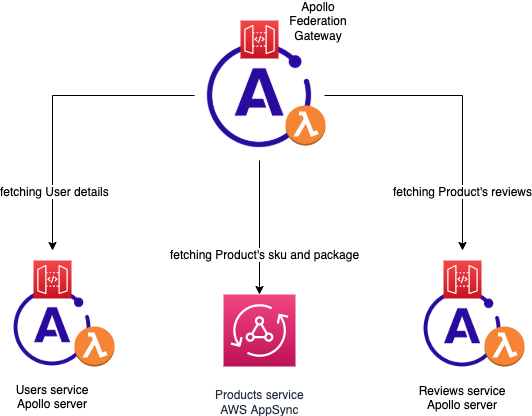Front-End Web & Mobile
Category: Top Posts
Fullstack TypeScript: Reintroducing AWS Amplify
We are thrilled to announce the general availability of AWS Amplify Gen 2, a fullstack TypeScript experience for building cloud-connected apps. AWS Amplify helps you accomplish two jobs: Host your web app Build and connect to a cloud backend With Amplify Gen 2, every part of your app’s cloud backend is defined in TypeScript. Need […]
Create a GraphQL API for any existing MySQL and PostgreSQL database
We’re excited to announce a new capability that makes it easy to build scalable, secure GraphQL interfaces over your existing relational databases with AWS Cloud Development Kit (CDK). Provide the AWS Amplify GraphQL API CDK construct with your database credentials stored securely in AWS Systems Manager Parameter Store as a SecureString, and start authoring your […]
Connect a React app to GraphQL and DynamoDB with AWS CDK and Amplify
Today, we’re excited to announce the official AWS Cloud Development Kit (CDK) construct for Amplify’s GraphQL APIs capabilities. With Amplify’s GraphQL API CDK construct, you can create a real-time GraphQL API backed by data sources such as Amazon DynamoDB tables or AWS Lambda functions using a single GraphQL schema definition. (View on Construct Hub) Launching […]
Apollo GraphQL Federation with AWS AppSync
This article was written by Florian Chazal, Senior Specialist Solutions Architect, AWS Update (August 2022): This blog post has been updated to comply with the new Apollo Federation spec v2.0. If you are migrating from v1 check the official documentation. Apollo Federation is an architecture and specification used to build and connect multiple distributed backend […]
NEW: Real-time multi-group app with AWS Amplify GraphQL – Build a “Twitter Community” clone
In a recent industry survey, over 66.6% (up from 59.7% in 2019) of JavaScript developers have used real-time technologies. Multiplayer apps makes your app more delightful and drives more organic adoption through user collaboration. With today’s launch, AWS Amplify enables developers to configure dynamic multi-group authorization for real-time subscriptions. This is part three of a […]
New: Announcing custom primary key support for AWS Amplify DataStore
Amplify DataStore provides frontend app developers the ability to build real-time apps with offline capabilities by storing data on-device (web browser or mobile device) and automatically synchronizing data to the cloud and across devices on an internet connection. Since its initial release, DataStore has been opinionated with regards to the handling of model identifiers – […]
NEW: Build React forms for any API in minutes with AWS Amplify Studio (no AWS Account required)
June 27, 2024: This blog post covers Amplify Gen 1. For new Amplify apps, we recommend using Amplify Gen 2. You can learn more about Gen 2 in our launch blog post. Today, AWS Amplify announces Amplify Studio form builder, the new way to build React form components for any API. Amplify Studio is a […]
NEW: Lazy loading & nested query predicates for AWS Amplify DataStore
Today, we’re announcing three major enhancements to Amplify DataStore to make working with relational data easier: lazy loading, nested query predicates, and type enhancements. DataStore provides frontend app developers the ability to build real-time apps with offline capabilities by storing data on-device (web browser or mobile device), and automatically synchronizing data to the cloud and […]
Announcing server-side filters GraphQL subscriptions with AWS Amplify
Today, AWS Amplify is launching the ability for you to filter real-time GraphQL subscription events service-side with Amplify CLI version 10.3.1. This gives developers the ability to optimize network traffic by only getting the real-time events for the data they care about. For example, for a live stream broadcasting website, developers can now filter the […]
Build real-time multi-user experiences using GraphQL on AWS Amplify
Today, AWS Amplify announces new real-time authorization capabilities enabling developers to build collaboration experiences with only a few lines of code. This features enables developers to share data between users by simply appending an “array” of data owners. Update to Amplify CLI version 10.3.1 and above and deploy your GraphQL API to enable this feature. […]









